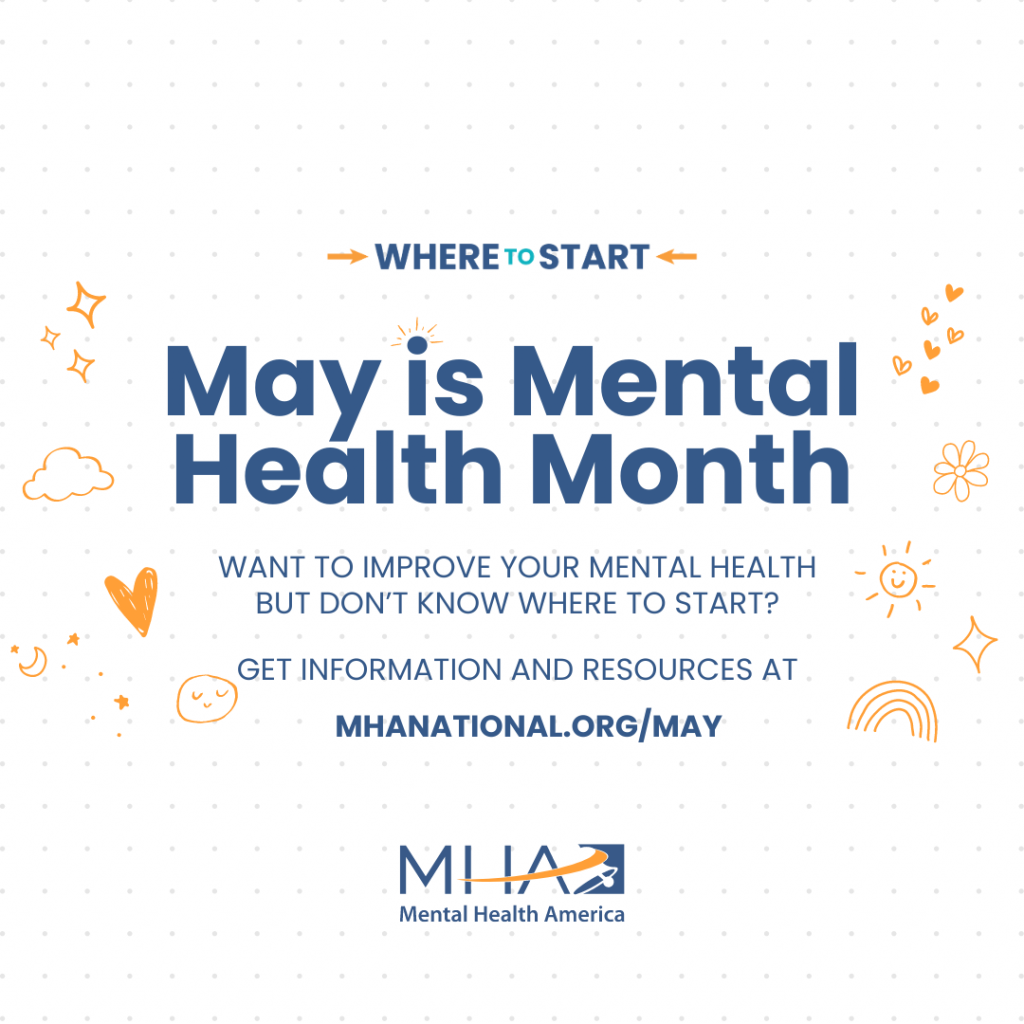
We live in a rapidly changing world that can be complex to navigate. About half of Americans can
remember a time when we were not constantly connected and it was easier to tune out the noise of the
world, while the younger half of the population can’t imagine life without the internet.
Modern life can have a significant impact on mental health — for better or for worse. The disturbing imagery
in the media we are exposed to today can be deeply unsettling. At the same time, our current technology
also allows us to mobilize and provide collective support more efficiently in times of natural disasters or
injustice.
And ironically, while our devices make us more connected than ever, loneliness is an increasingly serious
public health concern. We are now able to have conversations with friends and family on the other side of
the world in real time. However, constant connection also means that we will know if we weren’t invited to a
friend’s party down the street. Recent survey data show that more than half of U.S. adults (58%) are lonely.
Finding a sense of calm and focusing on well-being when you are having mental health concerns can be
daunting in our fast-paced society. It can be especially challenging to know where to start.
May is Mental Health Month and Rahway Dance Theatre (RDT) is raising awareness of the important role mental health plays in our lives. We are encouraging members of our dance community to take action toward protecting their mental
health and overall well-being.
This May, RDT will focus their efforts on helping members of the community to:
- LEARN how modern life affects mental health with new resources to navigate our changing world.
- ACT by building a coping toolbox to manage stress, difficult emotions, and challenging situations.
- ADVOCATE to improve mental health for themselves, the ones they love, and their community.
Mental Health America has created a toolkit to help individuals figure out where to start. The toolkit provides
free, practical resources for addressing mental health. Go to mhanational.org/may to learn more.
If you think you may be experiencing symptoms of a mental health condition and are unsure of where to
start, take a free, private mental health test at mhascreening.org to determine next steps.
It’s important to remember that working on your mental health takes time. Change won’t happen overnight.
Instead, by focusing on small changes, you can move through the stressors of modern life and develop
long-term strategies to support yourself — and others — on an ongoing basis.
24/7 TOOLS:
MHA Screening: Online screening at mhascreening.org is one of the quickest and easiest ways to determine
if you’re experiencing symptoms of a mental health condition. Our screens are free, confidential, and
scientifically validated
988 Suicide & Crisis Lifeline: The 988 Lifeline provides 24/7, free, and confidential support to people in
distress – you don’t need to be suicidal to reach out. Call 988 to be connected with a crisis counselor. Crisis
counselors who speak Spanish are available by calling 988 and pressing 2.
Texting the 988 Lifeline: When you text 988, you will complete a short survey letting the crisis counselor
know a little about your situation. You will be connected with a trained crisis counselor in a crisis center who
will answer the text, provide support, and share resources if needed.
Crisis Text Line: Text HELLO to 741-741 to be connected with a crisis counselor who will help you get through
your big emotions.
Warmlines: Warmlines are staffed by trained peers who have been through their own mental health
struggles and know what it’s like to need someone to talk to. For more information on warmlines, visit
screening.mhanational.org/content/need-talk-someone-warmlines
BlackLine: BlackLine provides a space for peer support and counseling, while witnessing and affirming the
lived experiences of folx who are most impacted by systematic oppression with an LGBTQ+ Black femme
lens. Call 1-800-604- 5841. Note: This resource is divested from the police.
Caregiver Help Desk: Contact Caregiver Action Network’s Care Support Team by dialing 855-227-3640.
Staffed by caregiving experts, the Help Desk helps you find the right information you need to help you
navigate your complex caregiving challenges. Caregiving experts are available 8 a.m. – 7 p.m. EST.
Childhelp National Child Abuse Hotline: If you or a child you know is being hurt or doesn’t feel safe at home,
you can call or text 1-800-4-ACHILD (1-800-422-4453) or start an online chat at childhelp.org to reach a
crisis counselor. They can help you figure out next steps to work through what is happening and stay safe.
Disaster Distress Helpline: A crisis line that individuals can contact when natural or man-made traumatic
events occur, such as floods, earthquakes, and terrorist acts. The Helpline will provide information, support,
and counseling. Call 1-800-985-5990.
Domestic Violence Hotline: If you’re experiencing domestic violence, looking for resources or information,
or are questioning unhealthy aspects of your relationship, call 1-800-799-7233 or go to thehotline.org to
virtually chat with an advocate.
NAMI Helpline: A free, nationwide peer support service providing information, resource referrals, and
support to people living with a mental health condition, their family members and caregivers, mental health
providers, and the public. Call 1-800-950-NAMI (6264), weekdays from 10 a.m. – 10 p.m. EST.
StrongHearts Native Helpline: Call 1-844-762-8483. The StrongHearts Native Helpline is a confidential and
anonymous culturally appropriate domestic violence and dating violence helpline for Native Americans,
available every day from 7 a.m. – 10 p.m. CST.
The Trevor Project: The Trevor Project is the leading national organization providing crisis intervention and
suicide prevention services to LGBTQ+ youth. Trained counselors are available 24/7 to youth in crisis, feeling
suicidal, or in need of a safe, judgment-free person to talk to. Call 1-866-488-7386, text START to 678-678, or
start an online chat at thetrevorproject.org/get-help.
Trans Lifeline: Dial 877-565-8860 for U.S. support and 877-330-6366 in Canada. Trans Lifeline’s hotline is a
peer support service run by trans people, for trans and questioning callers.
Veterans Crisis Line: Veterans Crisis Line connects veterans in crisis and their families and friends with
qualified, caring Department of Veterans Affairs responders through a confidential toll-free hotline, online
chat, or text. Open 24/7, call 1-800-273-8255.


